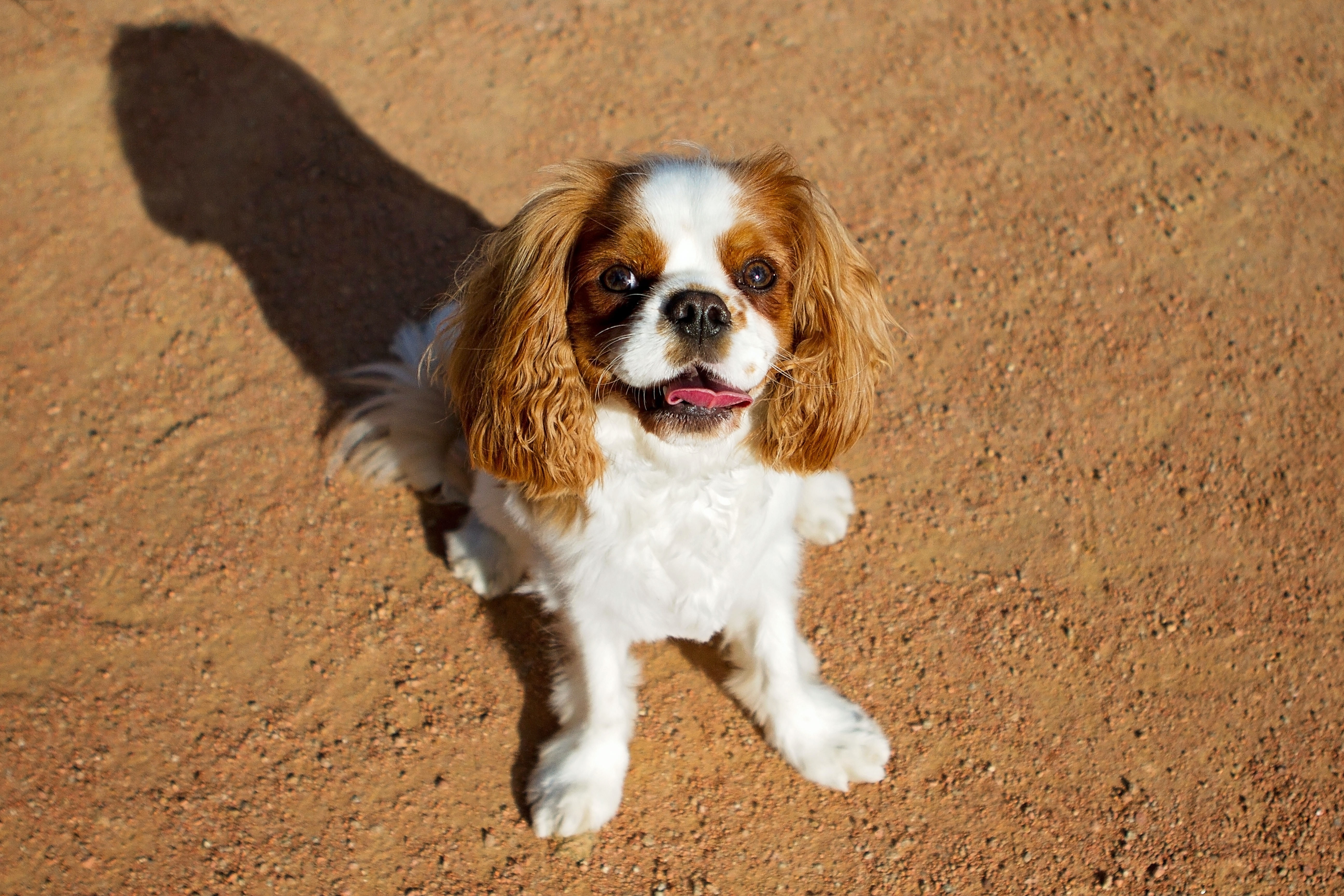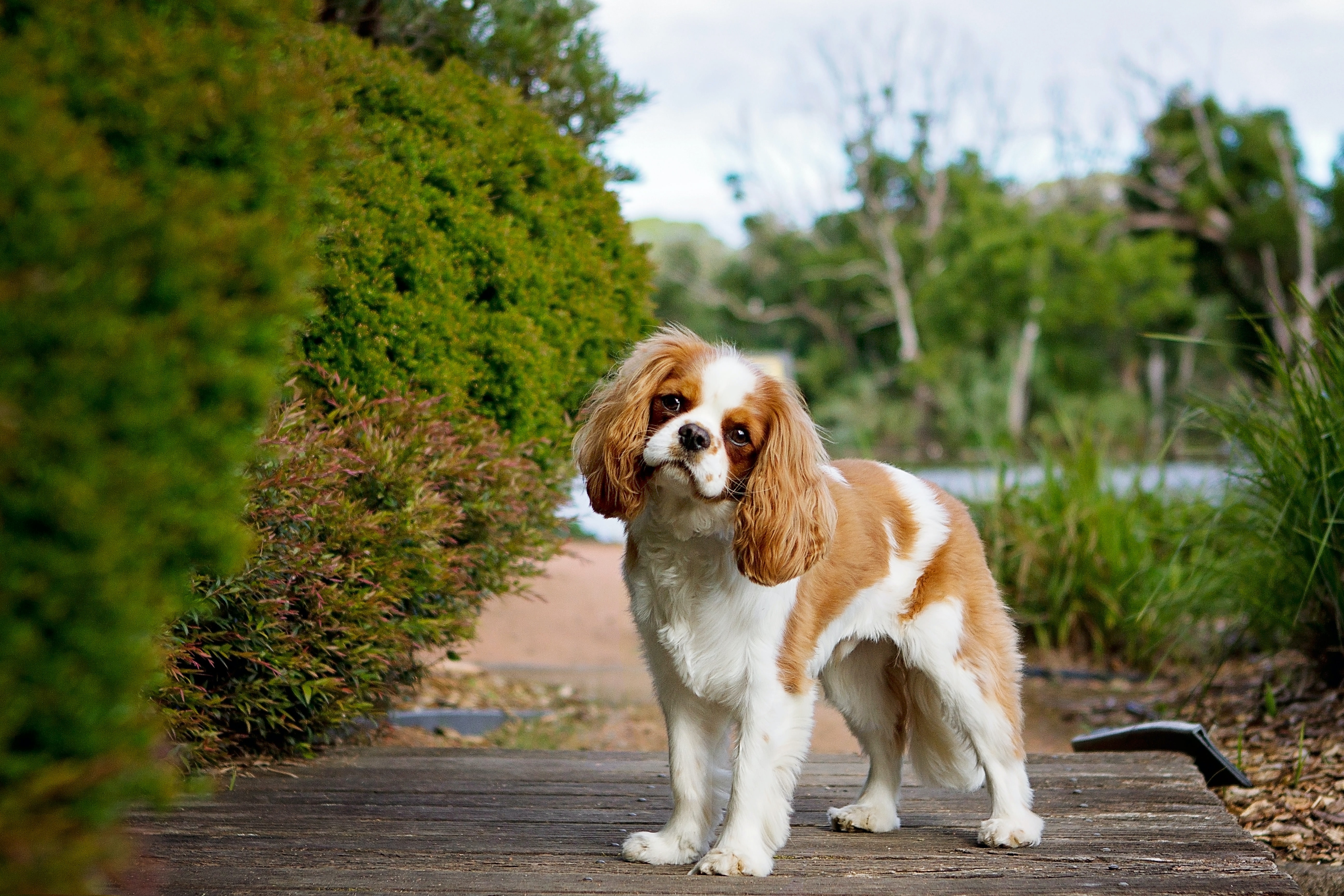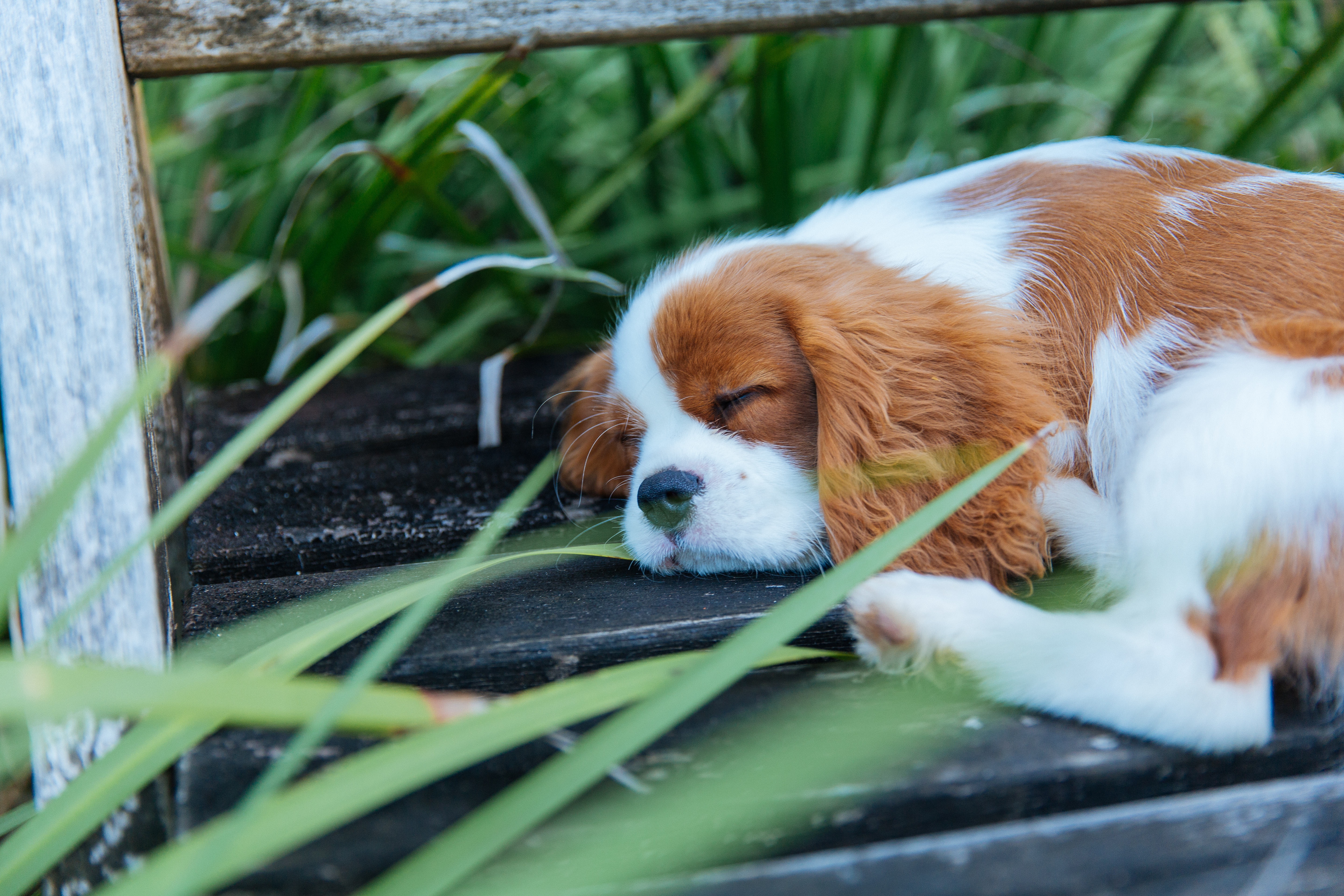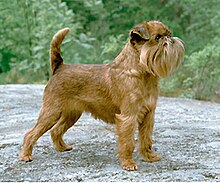
The Cavalier King Charles Spaniel, often simply referred to as the “Cavalier,” is a graceful toy breed known for its expressive, soulful eyes and gentle demeanor. Originating from the United Kingdom and named after King Charles II of England who was particularly fond of the breed, this spaniel is characterized by its soft, wavy coat and affable nature. Their friendly disposition and adaptability make them exceptional companions, whether in urban settings or spacious homes. Despite their regal appearance and history, Cavaliers are playful, affectionate, and eager to be part of family activities, often forming close, loving bonds with their owners.
The Cavalier King Charles Spaniel is a member of the AKC Toy Group.
Breed Characteristics
| Dog Breed | Cavalier King Charles Spaniel |
| Breed Popularity (AKC) | 14 |
| Country of Origin | England |
| Personality | Friendly |
| Life Expectancy | 12-15 yrs |
| Height | 12-13 in |
| Weight | 13-18 lbs |
| Color | Blenheim, Black and Tan, Ruby, and Tri-Colour |
| Coat | Medium, silky, wavy |
| Shedding | Occasional |
| Grooming | Weekly Brushing |
| Health Problems | Heart problems, syringomyelia |
| Trainability | Eager to Please |
| Exercise Needs | Calm |
Cavalier King Charles Spaniel History
The Cavalier King Charles Spaniel traces its roots to small spaniels seen in art from the 16th century in England. Named after King Charles II of England, they were a favorite of the royal court. In the 1920s, an attempt to reproduce the older style spaniel resulted in the development of the modern Cavalier King Charles Spaniel.
Temperament
Cavalier King Charles Spaniels are the epitome of affectionate companions. Their gentle and friendly behavior makes them perfect lap dogs. They have a moderate energy level and are quite adaptable to both city living and the countryside. Their sensitivity requires gentle training methods. They are social by nature, making them excellent with children and other pets. Barking tendencies are generally low unless they want something. Their intelligence aids in trainability, but they are not particularly dominant or aggressive. They crave human interaction and don’t enjoy long periods of solitude.
Remember, while breed traits provide a general idea, individual dogs can have personalities that differ from the breed standard. Always spend time getting to know the dog and ensure their needs and temperament align with your lifestyle.
Grooming Requirements
Cavalier King Charles Spaniels have a silky, medium-length coat that requires regular brushing to prevent tangles. Bathing should be done as needed, using a quality dog shampoo to maintain the coat’s health and shine. The regular grooming routine, including nail trimming and ear checks, is essential for this breed.
Cavalier King Charles Spaniel Health
Living around 9-14 years, these spaniels need consistent vaccinations. They are particularly prone to heart issues, with mitral valve disease being common. Syringomyelia, a severe condition affecting the spinal cord near the brain, is also a concern. Their diet should be rich in nutrients, and regular check-ups are key to early disease detection.
Exercise Needs
Cavalier King Charles Spaniels are affectionate and relatively active. Daily walks, paired with moderate playtime, cater to their exercise needs. A gentle game of fetch or a bonding session at the dog park can be both enjoyable and beneficial for them. Their sociable nature makes them great companions for relaxed outdoor activities.
Training
Cavalier King Charles Spaniels are affectionate and eager to please. Their gentle nature makes obedience training a joy, and they respond well to soft yet consistent commands. Early potty training is beneficial, and crate training provides a sense of security for this sensitive breed. Behavior problems are rare, but any signs should be addressed immediately. Socialization helps them embrace various settings, ensuring they remain adaptable and friendly.
Cavalier King Charles Spaniel Pictures



Related Dog Breeds
More Dog Resources
Are you thinking about getting a puppy? Make sure to check out our list of important questions to ask before you adopt a puppy.
We also have many resources to help, from naming your puppy to socialization resources and training tips.
Take me back to the Ultimate Guide to Dog Breeds



